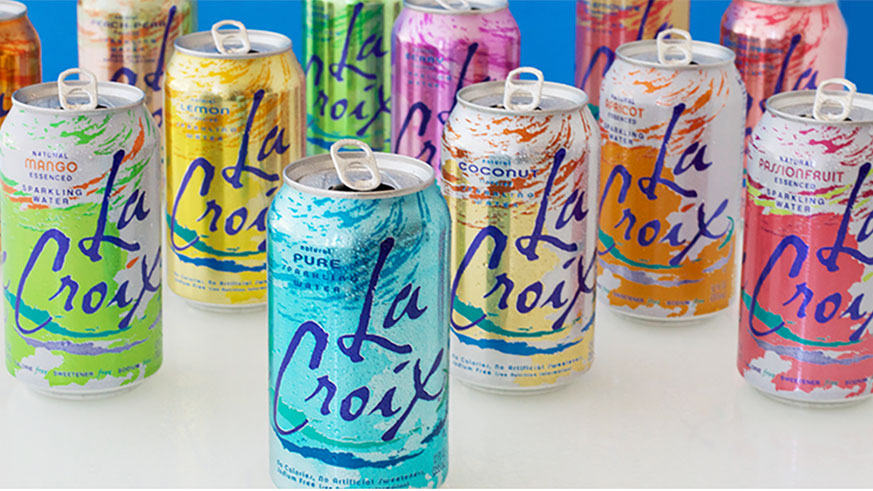LaCroix flavored sparkling water has become a genuine phenomenon in the past year, netting $827 million in sales and becoming both hotly praised and mocked on social media (sample tweet: “LaCroix tastes like someone yelling a flavor at you from the other room”).
Naturally, a class-action lawsuit was not far behind.
Filed last week in Chicago, such a suit alleges that the zero-calorie, “naturally flavored” water actually contains synthetic ingredients found in cockroach insecticide.
“These chemicals include limonene, which can cause kidney toxicity and tumors; linalool propionate, which is used to treat cancer; and linalool, which is used in cockroach insecticide,” said the filing law firm, Beaumont Costales, in a release. The firm claims that LaCroix “intentionally misled consumers into believing LaCroix (is) all-natural in order to drive sales of the product.”
LaCroix denied the allegations, saying that its flavors are “derived from the natural essence oils from the named fruit used in each of the flavors.”
“All essences contained in LaCroix are certified by our suppliers to be 100% natural,” the company added.
Limonene, a natural chemical found in the peels of citrus fruits, is used as a flavoring in a number of foods and beverages. It has been shown to have anti-cancer and pro-weight-loss effects in some laboratory studies. Linalool is a naturally occurring alcohol found in some flowers and spice plants. The FDA considers both additives safe for food use.
Experts say not to panic.
“The consumer should not be alarmed by this lawsuit. The compounds under discussion occur naturally in citrus beverages like orange juice and lime juice,” said Roger Clemens, adjunct professor of pharmaceutical sciences at the University of Southern California.
Added Clemens: “It is very unlikely these naturally-occurring substances pose a health risk when consumed at levels usually found in foods. If there were a health risk, then citrus juices and spices, such as curry, would not be consumed or be part of the commodity market.”
“The truth is, this lawsuit seems to be a stretch, working on the ambiguous nature of how the FDA distinguishes natural chemicals from synthetic ones, and a product of alarmist, chemophobic ideas about what we put in our foods,” wrote Neel V. Patel in Popular Mechanics, adding there is insufficient evidence that limonene causes cancer or kidney problems in humans.
National Beverages, LaCroix’s parent company, called the lawsuit’s allegations “false, defamatory and intended to intentionally damage National Beverage and its shareholders.” In a press release, the company said it will “vigorously seek actual and punitive damages among other remedies from everyone involved in the publication of these defamatory falsehoods.”






















